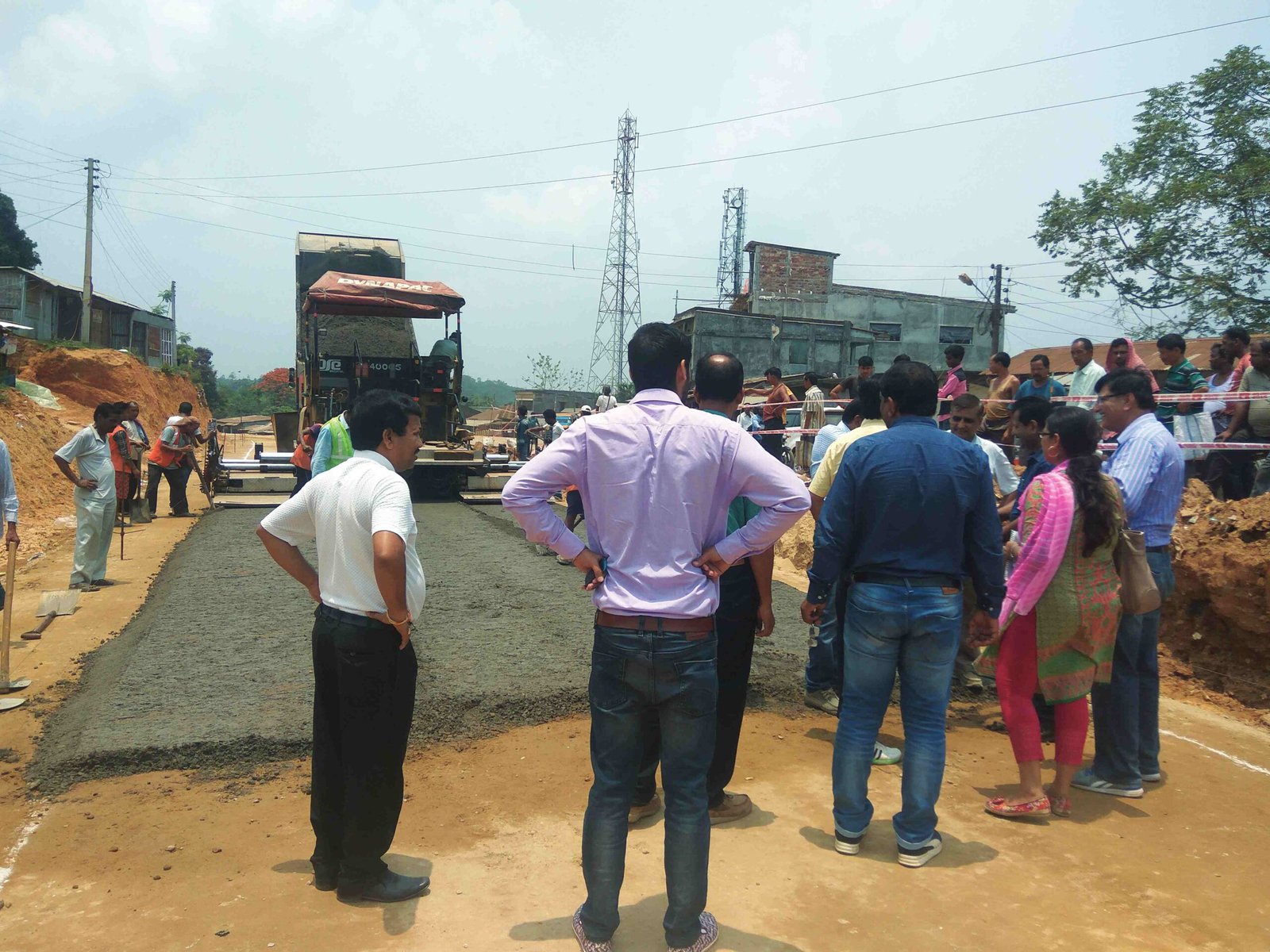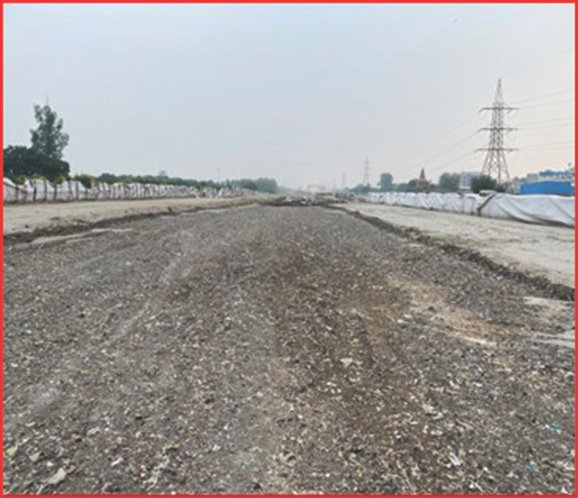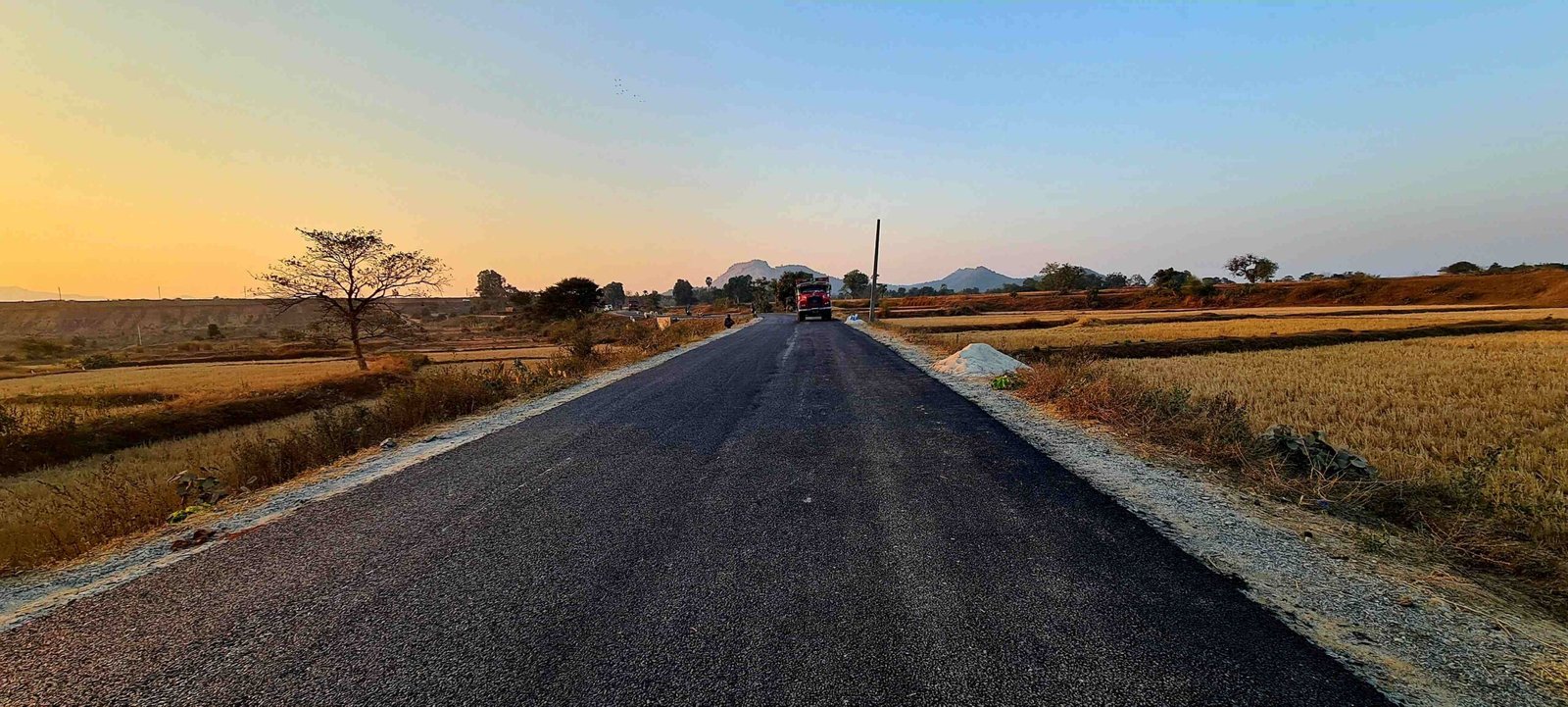

The concept of using waste materials in road construction is not new, but its importance has gained traction in recent years due to the escalating environmental challenges and the push for a circular economy. By repurposing industrial by-products, agricultural residues, and other waste materials, road construction can become a pivotal part of the solution to global waste management problems. This approach aligns with the principles of sustainable development, which emphasize the need for economic growth without compromising the health of the planet. Dr. Manoranjan Parida, Director and Dr. Siksha Swaroopa Kar, Principal Scientist, CSIR-CRRI look at the different types of waste material that are used in road construction and the challenges involved.

In India, the government has taken a proactive stance on this issue through its ‘Waste to Wealth’ mission. This initiative is part of a broader strategy to promote the reuse of waste materials in various sectors, including infrastructure development. The mission encourages innovative practices that transform waste into valuable resources, thereby reducing the environmental burden and contributing to the country’s sustainability goals. By integrating waste materials into road construction, waste disposal challenges are also addressed along with saving of natural resources. This initiative reflects the government’s commitment to building a more sustainable and resilient infrastructure while aligning with global sustainability targets such as the United Nations’ Sustainable Development Goals (SDGs).
Emerging technologies, such as advanced recycling methods and novel materials like bio-based bitumen, high-performance composites and self-healing asphalt are set to revolutionize the conventional road construction practices.
Types of Waste Materials in Road Construction
Various types of waste materials have emerged as viable alternatives to traditional resources, categorized into industrial waste, infrastructure waste, agricultural waste, and municipal waste.
Industrial waste
Various waste products such as coal ash, blast furnace slag, and construction and demolition waste, among others, are being repurposed for applications like embankments, base and sub-base materials, and even in bituminous and concrete mixes. These materials, sourced from industries such as thermal power, steel, petrochemical, and construction, provide cost-effective and environmentally friendly alternatives to traditional construction resources. The diverse applications of these waste materials can showcase the potential to reduce environmental impact while maintaining the structural integrity of highways.
Research work is being carried out by number of academic institutes, along with CSIR-CRRI in both lab and field applications to utilize the industrial waste.
Potential of Industrial waste/marginal local materials for highway construction (SUSTRANS SOAR Report, 2017, CRRI).
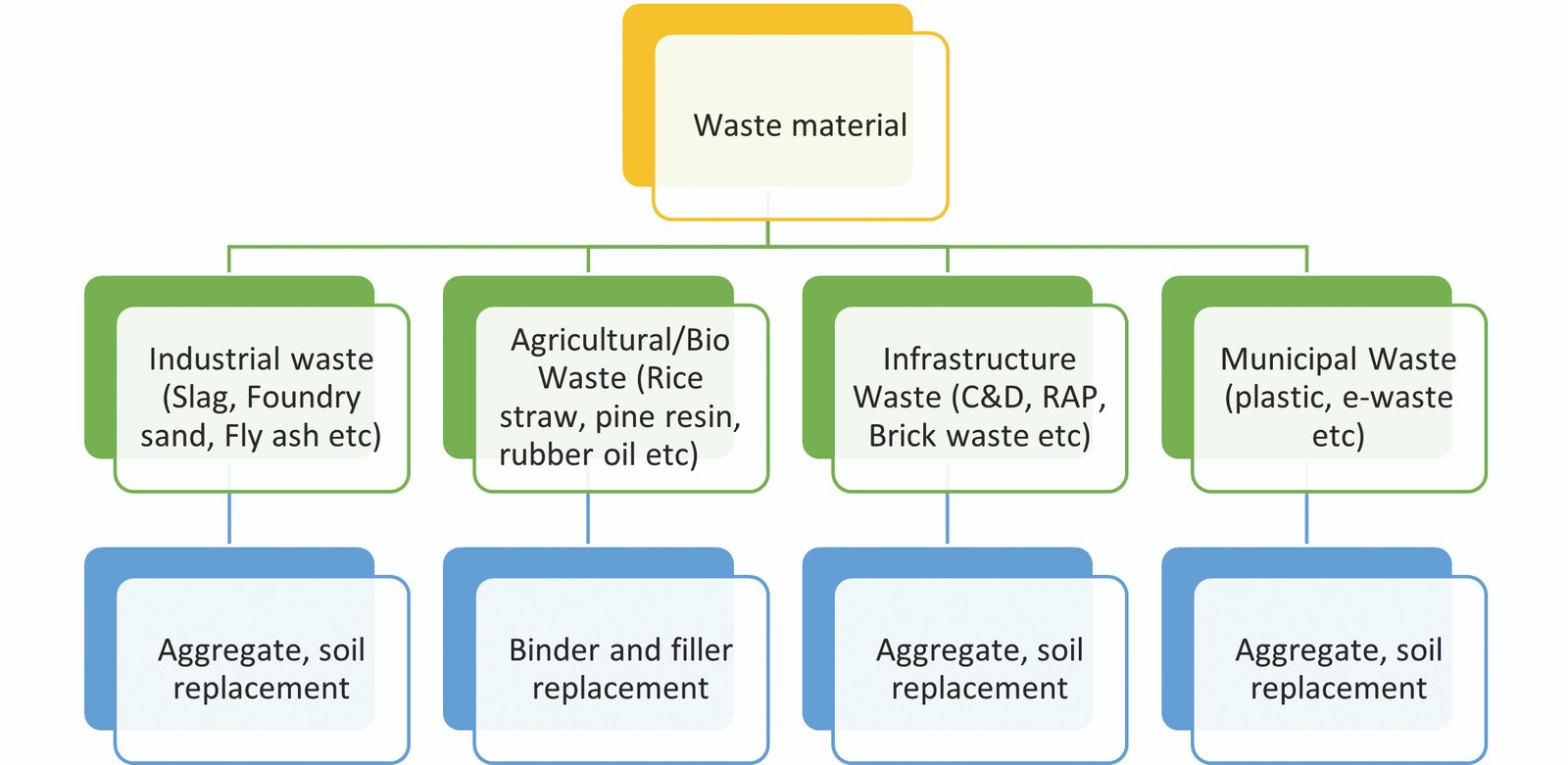
Infrastructure waste
Waste materials from infrastructure projects, including construction and demolition (C&D) waste and recycled asphalt pavement (RAP), are valuable resources in road construction. C&D waste, composed of materials such as concrete, bricks, and metals, is often crushed and reused in base and sub-base layers, providing a stable foundation for roads. Recycled asphalt, sourced from old pavements, is processed and reincorporated into new asphalt layers, reducing the need for virgin materials and lowering the overall carbon footprint of road projects. This approach not only minimizes waste but also supports a circular economy, where materials are reused rather than discarded.
CRRI is actively working to incorporate the maximum amount of RAP and C&D waste in road construction through pilot studies. This approach not only minimizes waste but also supports a circular economy, where materials are reused rather than discarded.
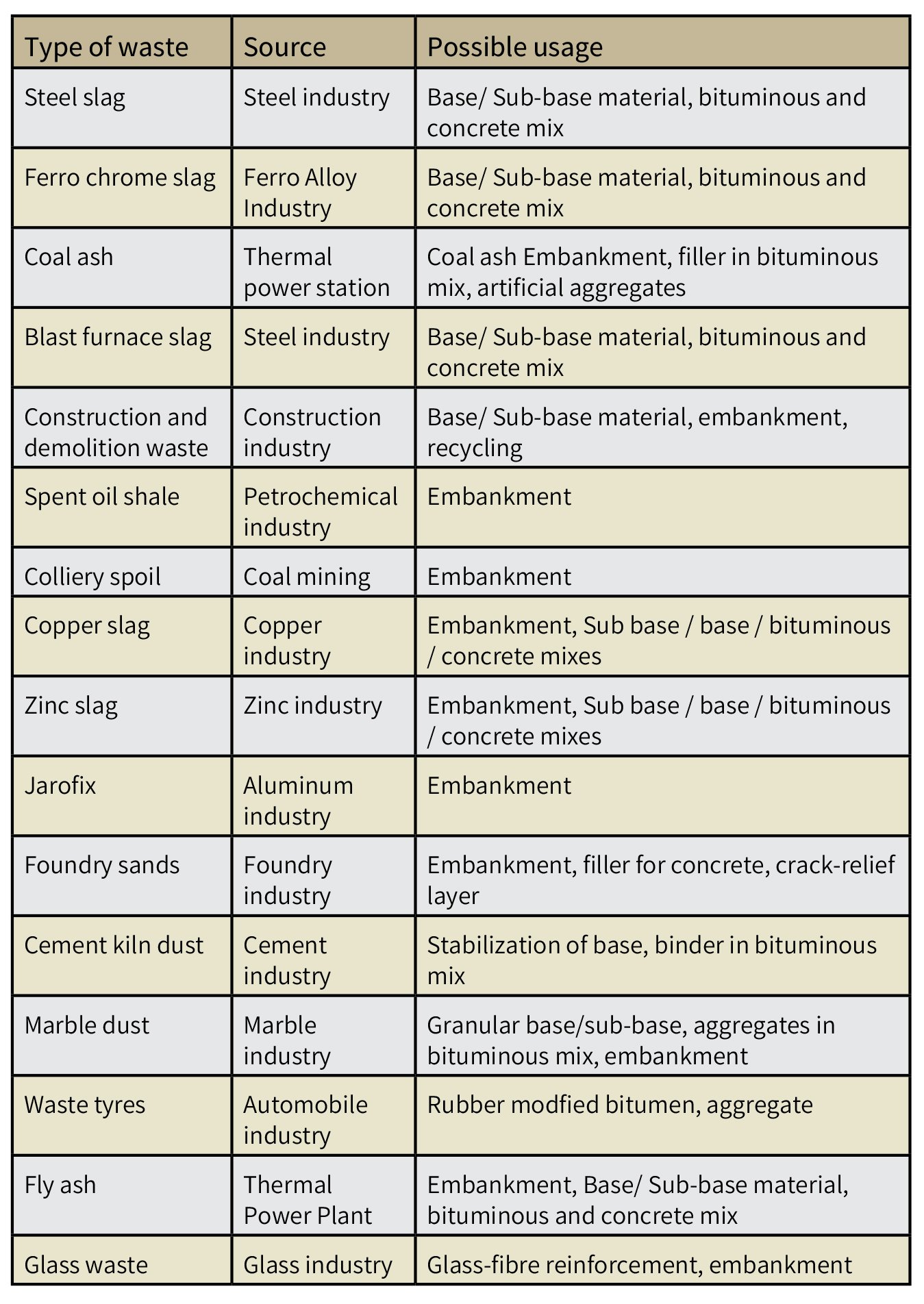
Agriculture/Bio Waste
Agricultural waste materials like rice straw, pine needles, and bio bitumen offer innovative solutions for sustainable road construction. Rice straw, typically burned as a disposal method, can be processed into bio bitumen, an eco-friendly binder that replaces conventional bitumen in asphalt mixes. Pine needles, another form of agricultural residue, are being explored for their potential in composite materials for road construction. These waste materials provide a renewable alternative to traditional resources, reducing dependency on fossil fuels and contributing to a more sustainable construction industry.
Municipal Waste
Plastic waste, which poses a significant environmental challenge, can be used to enhance the flexibility and durability of bitumen in asphalt layers. E-waste, containing valuable metals and materials, is being recycled and integrated into construction materials reducing the burden on landfills and resource extraction. MSW, when properly processed, can be utilized as a filler material in road construction, turning waste into a valuable resource. This approach aligns with the principles of sustainable development by addressing urban waste management challenges while promoting the reuse of materials.
The experience gained by laboratory characterization of segregated municipal solid wastes collected from Ghazipur, New Delhi, and Varanasi, UP (IRC-SP-132-2022), aligns with the principles of sustainable development by addressing urban waste management challenges while promoting the reuse of materials.
Challenges
Technical barriers in the pursuit of road construction include ensuring compatibility of diverse materials, establishing standardized procedures, and acquiring the necessary technical expertise to effectively integrate these materials into construction practices.
Regulatory and legal challenges also pose significant hurdles, such as the absence of clear guidelines, the need for updated specifications, and the lack of sufficient regulatory support to oversee and endorse the use of these materials. Furthermore, building market and client confidence is crucial; overcoming reservation requires demonstrating the long-term benefits of these sustainable practices and encouraging adoption through successful pilot projects and comprehensive research. Addressing these challenges is essential for advancing the use of waste materials in road construction and achieving a more sustainable future.
Key Players in Sustainable Road Construction
As the road construction industry shifts towards more sustainable practices, key players including government agencies, research institutions, Policy initiator, and industry stakeholders are driving this transformation. Their coordinated efforts are essential in integrating waste materials into infrastructure projects, ensuring both environmental and practical benefits.
Policy Support and Initiatives
The Ministry of Road Transport and Highways plays a critical role in fostering the use of waste materials in road construction through supportive policies. These policies are in alignment with the Indian government’s ‘Waste to Wealth’ mission, which aims to repurpose waste materials to reduce environmental impact and promote sustainability. The National Highway Authority of India, along with Border Roads Organization, National Highways and Infrastructure Development Corporation, and State Public Works Departments, further supports these initiatives by integrating such policies into national and state-level infrastructure projects. The National Rural Infrastructure Development Agency also contributes by incorporating these sustainable practices into rural road development projects.
Collaborations and Research
Collaboration is essential for the advancement of sustainable road construction. The CRRI, in partnership with research-focused institutions such as IITs, NITs, and government and private universities, works closely with industry experts, material suppliers, and government bodies to research and test innovative waste materials. These collaborations focus on developing and refining technologies to ensure that waste materials are effectively utilized in road construction. Research efforts help address technical challenges and provide evidence-based recommendations for the use of these materials.
Pilot Projects:
Pilot projects are crucial in demonstrating the practical applications of waste materials in road construction. Ongoing projects, supported by NHAI, BRO, NHIDCL, NRIDA and other stakeholders, test the performance of these materials in real-world conditions. These projects not only provide insights into the effectiveness of waste materials but also help build confidence among stakeholders by showcasing successful outcomes and potential benefits. The results from these pilot projects are instrumental in guiding future implementations and scaling up the use of waste materials in road construction.
Updating Standards for Waste Materials
Both IRC and BIS are actively involved in the process of updating standards to incorporate new developments in the use of waste materials. IRC periodically reviews and revises its guidelines to reflect advances in technology and the practical experiences from pilot projects. Similarly, BIS updates its standards to address emerging materials and methods, ensuring that they align with current research and best practices. This ongoing process of standardization helps in the effective and safe integration of waste materials into road construction, providing a framework for consistent quality and performance across projects.
In short
Scaling up the use of waste materials from local projects to national highways requires a strategic approach. Implementing best practices from successful pilot projects and developing standardized guidelines are crucial steps toward widespread adoption. Strengthening collaborations between government bodies, research institutions, & industry leaders, positioning India as a global leader in sustainable infrastructure development and fostering international collaborations can improve the efficiency and effectiveness of road construction. The effort can also align with global sustainability goals by reducing reliance on non-renewable resources and minimizing environmental impact.
 TrafficInfraTech Magazine Linking People Places & Progress
TrafficInfraTech Magazine Linking People Places & Progress
